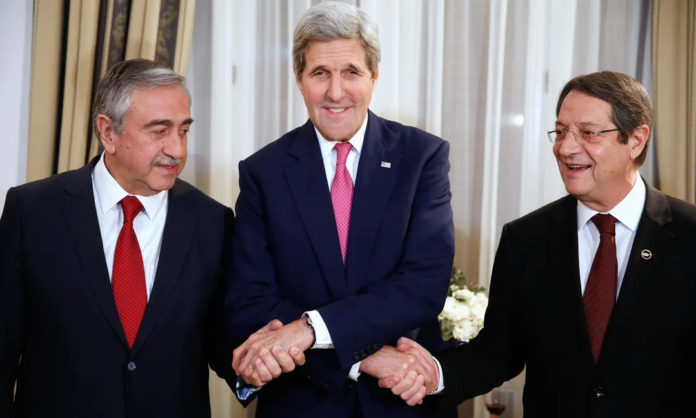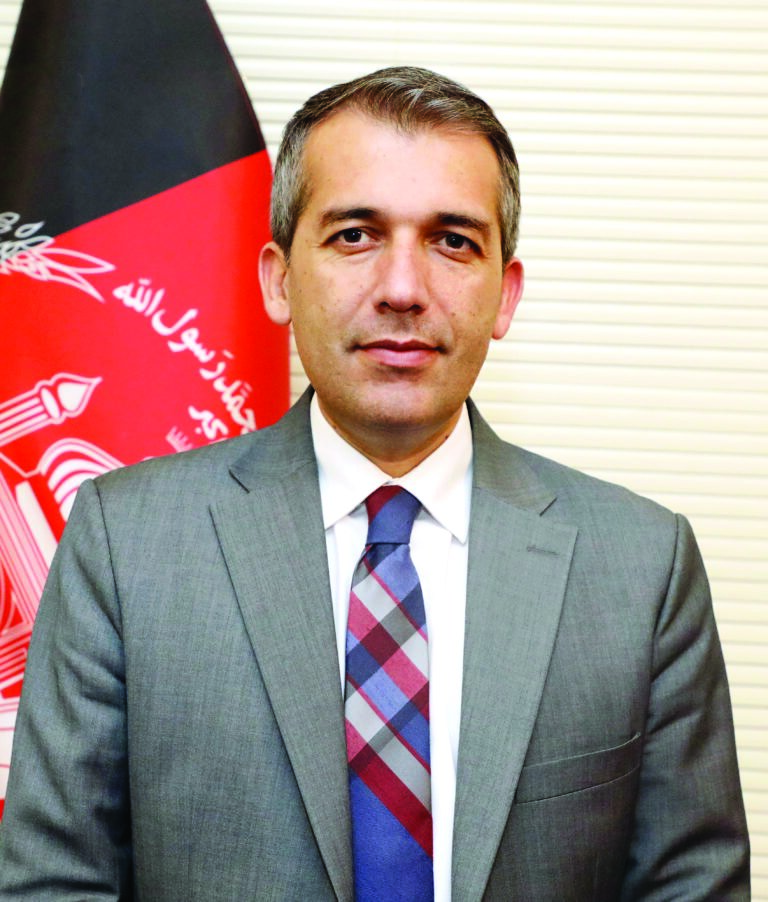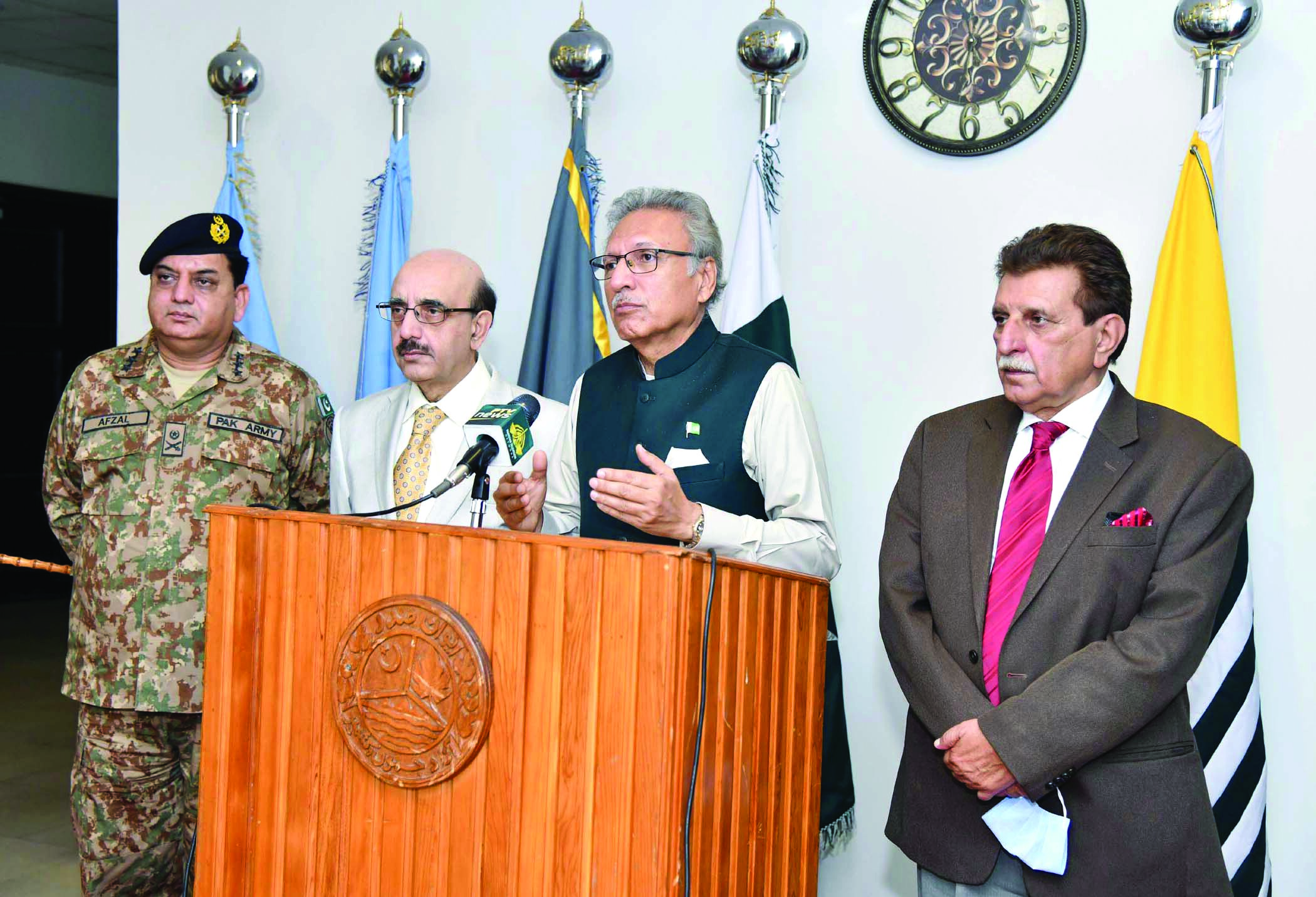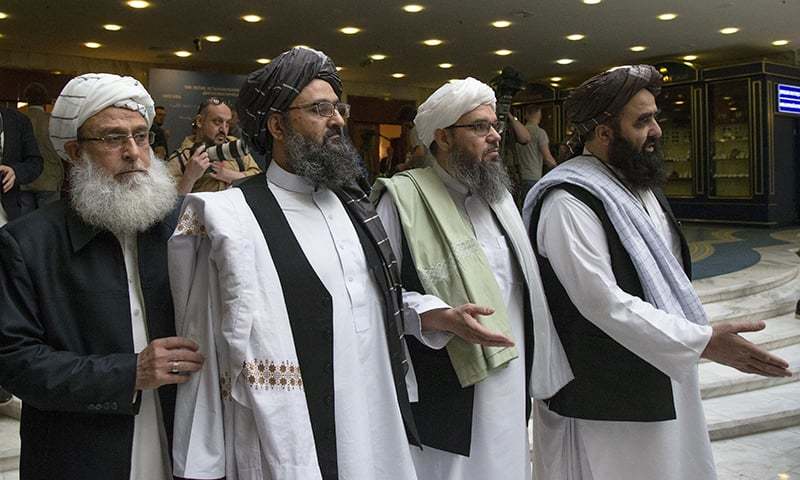“The ongoing efforts to reunite Cyprus is the best chance in decades” US Secretary of State
John Kerry
Turkish Republic of Northern Cyprus (TRNC) is once again in international limelight due to ongoing collaborative efforts of its conflict resolution. More than 30 years and 360 months have been wasted and washed due to unsuccessful talks of its conflict resolution. Too long and too precarious “isolation” brought, but human miseries and sever socio-economic dependencies. Dreams of socio-economic prosperity evaporated and sea of hope remained dried in the watery land of Cyprus.
Moreover, dramas of acceptance, rejection and hegemonic frames of minds have been a “spoiling factor” in the past. Status quo has been worshiped for once own vested interests for the last 52 years. Deity of humanity stayed at bay and people of the divided island suffered badly. Thanks God “sanity” prevails at last.
Strong Political Will
Due to strong political will of both the sides the prospects for a unification of Cyprus are the best they have been for a generation. In many ways, the stars are aligning the leaders, Mustafa Akinci and Nicos Anastasiades of the Turkish and Greek communities respectively are committed, the Guarantor Powers, Turkey, Greece and the UK are supportive, and the international community USA, EU, Germany, France and even Russia is committed to help.
Sincere Efforts
Sincere efforts in shape of series of talks between the leaders of TRNC and Greek Cypriot have been carried for the last one year. Regional “guarantors” and global “meditators/arbitrators” are trying their levels best to resolve this issue for the betterment of its people and region alike. Even global facilitators are rigorously engaged with the main stakeholders to overcome all the possible hurdles during ongoing talks.
Era of Convergences
Now, divergences are being converted into convergences. Disputes are being diluted. Deadlocks are being defrosted. Delays have been decoded to achieve a sustainable solution acceptable to both the people and leaders of the 180 KM Island. Multi-dimensional and multi-layered conflict resolution has been practiced to produce major positive changes in political, social, and economic systems for the last one year.

Seriously Engaged
The President of TRNC Mustafa Akinci and Nicos Anastasiades, the President of the Greek Cypriot South are seriously engaged and not merely playing for any political mileage, which is commendable. Both are sincere enough to put an end to the sufferings of their people. Both are flexible enough to avoid any maneuvering. Both are committed enough to prevent any conspiracy, if any. And the last, but not the least both are skillful enough to unearth any scheme against the ongoing settlement talks.
Cyprus and Discipline of Politics
Politics are among the most ancient, enduring, and consequential sources of conflict, as they determine how power will be distributed among people, including over life and death, wealth and poverty, independence and obedience. Conflicts concerning these issues have shaped the ways we as human beings have interacted as a species over the course of centuries. Both countries have decided to shun their political, social, geographical, ethnical and above all economic differences to live a decent life in the future. Now it has become a “national drive” and “national narrative” of reconciliation, connections, concessions and favorable conditions for mutual peaceful co-existence during the ongoing talks and after the settlement.
Solution of Deep-rooted Conflicts
In is one the bitter lessons of disciplines of politics, sociology, governance and above all human management that deep-rooted conflicts cannot be dealt with by conventional mediation, arbitration, and other implicitly coercive and non-analytical processes. Moreover, political, economic, and social differences inevitably create conflict, as do differences in ethnicity, gender, religion, personality, and style. But now with greater mutual understandings of cross-culture, limitations, benefits, privileges and with a “changed world”, deeply entrenched political conflicts can be resolved, transformed, and transcended and both the countries are rightly moving in this direction.
Strategies
To achieve this ultimate goal it requires designing culturally adaptable conflict resolution approaches that integrate prejudice reduction, group facilitation, public dialogue, collaborative negotiation, mediation, arbitration, community building, and similar technologies. Both leaders of the Island are trying their levels best to achieve a peace agreement between the two divided countries and have a “multiplication factor” for its future socio-economic prosperity, national dignity, equal political rights and the last but not the least, greater regional as well as global connectivity.
To keep hope of settlement high, both countries must have to form local intervention teams, develop indigenous conflict resolvers, increase local institutional conflict resolution capacity, and train trainer’s skills.
Usually, political conflicts are simultaneously public and private, intellectual and emotional, procedural and structural, preventive and reactive, relational and systemic. As a result of this complex, multi-layered character, resolution efforts are required that focus on encouraging local, collaborative initiatives and combining these elements, rather than importing or externally imposing generic solutions. Both countries are now sensibly engaged, politically charged, socially magnified and economically desperate to reach on a solution for themselves and many generations to come.

They are rightly adopting the collaborative, “elective,” democratic approach which focuses on supplementing rather than replacing indigenous resolution strategies, while learning from and building on local conditions.
The following given diagram clearly shows the importance of engagement and connectivity. It highlights different constructive stages/steps to be taken in order to achieve a workable conflict resolution. It divides conflict resolution process into two i.e. Active, and Passive, both have their core principles to be followed in a tense situation.
The following diagram clearly shows the importance of engagement and connectivity. It highlights different constructive stages/steps to be taken in order to achieve a workable conflict resolution. It divides conflict resolution process into two i.e. Active, and passive, both have their core principles to be followed in a tense situation.
This diagram is the simplest form of conflict resolution but it also provides basis of all the tricky or complicated conflicts resolution. Personal egos/prejudices or personality styles/traits may spoil the process of any conflict resolution which are therefore must be flexible and accommodative. Better communication skills to win over hearts and souls hold the key of success. Elements of political will, wisdom, better knowledge and the last but not the least, flexibility are essential to achieve in the ongoing settlement negotiations between TRNC and Geek Cypriot. Let us hope for the best.
Value of Human Emotions
True human emotions play very crucial role in any conflict resolution process. To recover from severe political conflicts such as war and genocide and people in divided communities, both countries need to develop the emotional skills to work through their rage and guilt and assuage their grief and loss; the communication skills to reduce bias and prejudice and engage in constructive dialogue; the heart skills to rebuild empathy and compassion and reach forgiveness and reconciliation; the organizing skills to develop interest-based, collaborative leadership and become productive, functional communities again; and the conflict resolution skills to design systems that successfully prevent and resolve future disputes.
The above given “conflict resolution model” outlines different stages/matters/issues to be studied while going into a conflict resolution. Both countries must develop some sort of sense of “give & take” in terms of politics, economics, governance, property and natural resources and from “interpersonal to international” stakeholders contributions during their ongoing lengthy spells of negotiations for settlement.
The above given diagram also summarizes the important problems and issues in the ongoing talks between TRNC and Greek Cypriot leadership. Outcome of this May, 2016 Parliamentary Elections in Greek Cypriot would also be a decisive factor to move forward.
Moreover, several thorny disputes, including territorial adjustments, power sharing and property rights will need to be resolved if a unified, federal Cyprus is to occur. Both leaders know that without tough compromises on property and territory a solution will be hard to sell to their respective communities.

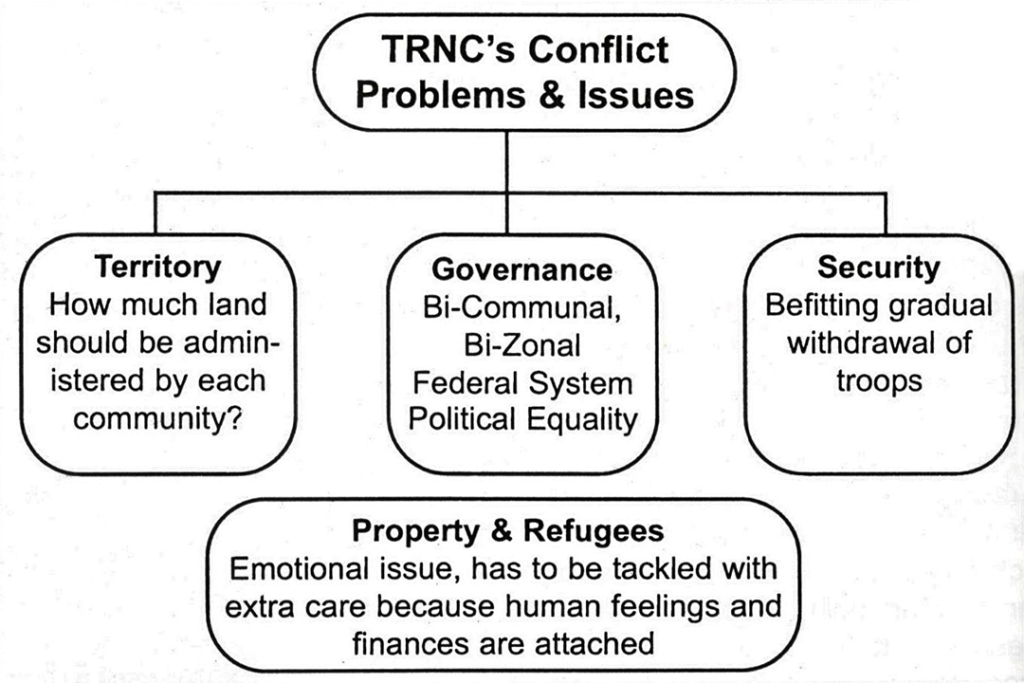
Commitment of UBP-DP Government
The newly established coalition government headed by Prime Minister Huseyin Ozgurgun said the UBP-DP government will continue to support efforts to reach a bi-communal, bi-zonal federal solution to the Cyprus problem. It would be on the basis of political equality despite criticisms of the Greek Cypriot side’s stance on the issue.
Assertive Role of Turkey
The PM further pointed out that any settlement reached on the Cyprus problem must ensure the continuation of Turkey’s effective guarantees and must seek to protect the Turkish-Greek balance in the region. He said that the solution must also preserve the socio-economic structure established over the years on both sides of the island, keeping the forced relocation of people to a minimum.
Property Issue
Moreover, the property issue must be solved mainly through compensation, exchange or limited restitution. The bi-zonal nature of a settlement must not be watered down through ‘special status areas’ the programme stated.
CBMs
The PM expressed his government support for initiatives aimed at building confidence between the two sides. He stated that the new government will work towards the implementation of Confidence Building Measures (CBMs). He stated that “the natural resources of the island can and should be used for cooperation and not be turned into a source of conflict”.
He said that the government, in cooperation, will do all it can to defend and protect the rights of the Turkish Cypriots if any attempts are made to usurp their rights.
Series of Reforms
During the ongoing settlement talks the two divided countries are also promising to undertake a series of reforms, infrastructural projects and privatisations as stated in the 2016-2018 economic protocol, and to prepare the Turkish Cypriot and TRNC institutions for EU membership.
Turkish Prime Minister Ahmet Davutoğlu said “Our commitment to reach a fair and comprehensive political settlement based on the political equality of both sides in the Cyprus issue is continuing.”
Addressing the Parliamentary Assembly of the Council of Europe (PACE), Davutoğlu stated that the latest developments in the Eastern Mediterranean revealed once again the importance of solving the Cyprus issue without undue delay. He added that:
“We aspire to reach a permanent settlement in the Cyprus issue as soon as possible and we support active and constructive efforts of both leaders. I want to stress that a settlement in 2016 can be possible through the sincere efforts and the energy of both sides. Reaching the solution objective will be an important step for transforming the Eastern Mediterranean into a field of peace, stability and cooperation. This will be for the benefit of particularly the two sides in Cyprus as well as the international community and the Council of Europe in general.”
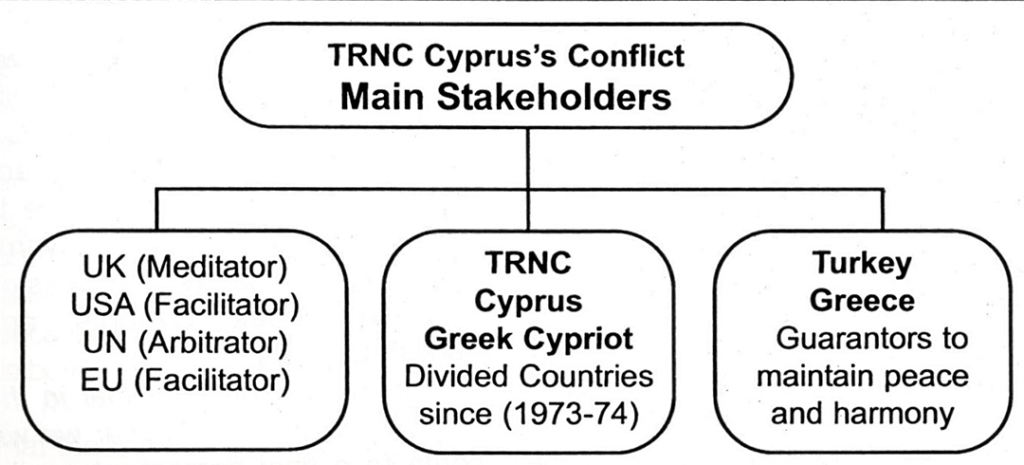
Espen Barth Eide, UN Secretary-General’s Special Adviser on Cyprus
Most recently, Espen Barth Eide, UN Secretary-General’s Special Adviser on Cyprus, has said that there are currently a lot of issues which have not been concluded in the negotiations, but the climate in the negotiations is good. Eide described as “constructive” the one and a half hour long meeting he had with President Mustafa Akinci. Eide noted that he shares the view that the meetings held between the leaders were “productive”. Moreover, he argued that contrary to the opinions in some circles, there is no letting up in the negotiations and that the negotiators on both sides are working intensively.
Referring to the meetings he had with the British and the French Foreign Ministers and the US Assistant Secretary of State for European and Eurasian Affairs, Victoria Nuland, Eide noted that during these contacts he saw that the above-mentioned officials were willing to support the process in Cyprus.
“International interest and support is very strong at this critical turning point. During these contacts more concrete issues were discussed such as economic support”, he added.
He noted that the issues/matters are being discussed in an interrelated manner in the negotiations and expressed the belief that this method would not have been chosen if they did not think that it would have a result. He added that the sides are doing whatever they can to overcome their differences in the talks.
President Mustafa Akinci
President Mustafa Akinci has said that positive developments have been enhanced during different meetings with President Nicos Anastasiades. Akinci said, “We will continue to work. The target is a solution in 2016”. President Anastasiades emphasised that “our target is not the momentum [in the negotiations], but an acceptable solution”.
“Our commitment to reach a comprehensive settlement in the Cyprus issue is continuing”
US Assistant Secretary of State for European and Eurasian Affairs Victoria Nuland
The US Assistant Secretary of State for European and Eurasian Affairs Victoria Nuland said that the US is ready to help the parties to reach a settlement on the island. Nuland stated that the United States is eager to help the parties to come to an agreement and added that she observed good progress on the ongoing negotiations.
Furthermore, Victoria Nuland said that the US is ready to contribute to the economic dimension of a possible settlement on the island.
Greek Cypriot Administration Spokesperson Nicos Hristodulidis
The Greek Cypriot Administration Spokesperson Nicos Hristodulidis stated that President Mustafa Akıncı and the Greek Cypriot leader Nikos Anastasiades discussed the Governance and Property issues at their meeting held most recently and they achieved improvement on these issues. Hristodulidis also stated that the divergence on the issue of property is still continuing.
Furthermore, Hristodulidis added that they have reached some agreements on the Governance and Property chapters, but disagreement on the property issue whether the user or the owner will have the first right is continuing.
Regarding the meeting of Anastasiades and Nuland on the energy issue, Hristodulidis said that they focused on the third round of license tender and the hydrocarbon resources in the Eastern Mediterranean.
European Commission chief Jean-Claude Juncker
European Commission chief Jean-Claude Juncker said he is “very confident” that negotiators will reach a final agreement to reunite Cyprus within the next six months.
Long-stalled UN-brokered peace talks, now has the best chance to reunify EU member state Cyprus after four decades of division between Greek Cypriots and Turkish Cypriots.
“I am very confident that in the first six months of this year we will come to a final agreement on the reunification of that island,” Juncker, the head of the executive branch of the 28-nation EU, told a press conference in Brussels.
“I hope 2016 will be the year that we can finally resolve the Cyprus issue,” he added.
Greek Cypriot leader Nicos Anastasiades and his Turkish Cypriot counterpart Mustafa Akinci said Thursday that they will meet UN chief Ban Ki-moon on the sidelines of the World Economic Forum in Davos next week to push forward the peace process.
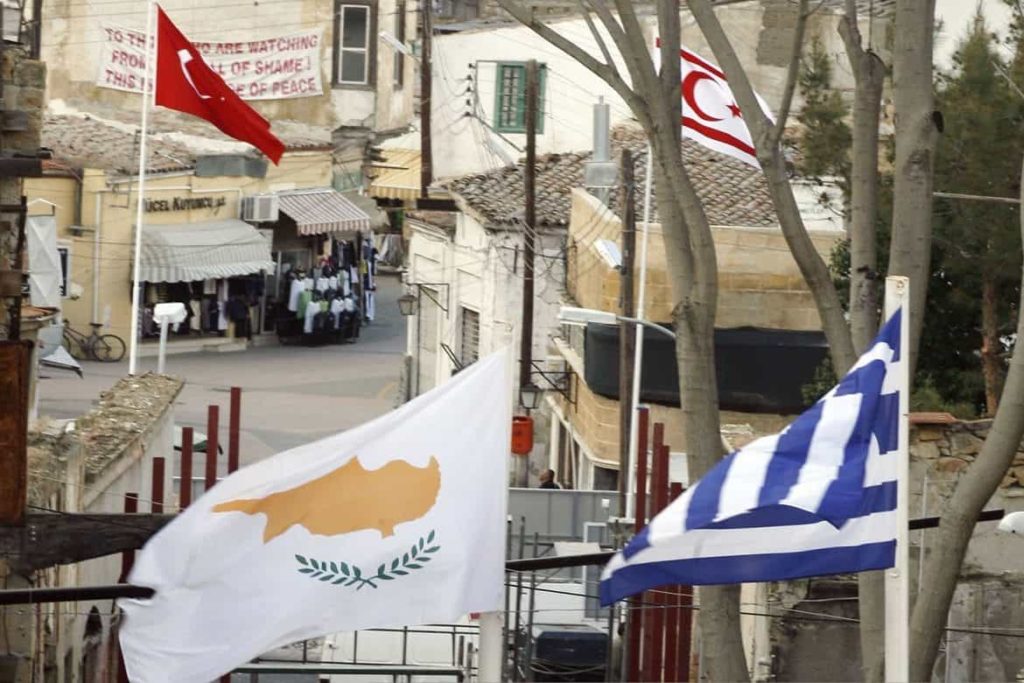
Meaningful Engagement of International Community
The International community’s involvement in the Cyprus conflict resolution is now on the rise. It has become epicenter of all kinds of diplomatic activities. The Foreign Ministers of Turkey, Greece, UK, Germany, Russia and the USA have all visited Cyprus during last one month. The Chinese Foreign Minister is also due to visit the island shortly. The famous the Economist, Gordian, Financial Times, Wall Street, Telegraph and many others international channels have already published and predicted the possible settlement during 2016.
Even Germany one of the key countries of EU showed great interest in the settlement of Cyprus.
German Minister of Foreign Affairs Frank-Walter Steinmeier stressed that “it is the first time that Germany, one of the leading countries in Europe, shows such an interest to the solution of the Cyprus problem. He advised to follow the “Reunited East and West Germany model” in the ongoing settlement talks in order to find a solution to the Cyprus problem.
TRNC: Stagnation to Stability
The Saga started from 1973-74 and sailed through different ups and downs. Annan Plan 2004 had some substantial mechanism to move forward. Greek Cypriot flatly rejected this idea where as TRNC accepted. Throughout all these years “status quo” was maintained and projected as the best thing they could hope for which ultimately deteriorated both parts of the island. Now, change is there to stay and settle the issue of Cyprus. The election of Mustafa Akinci as president of the TRNC in 2015 breathed new life into the peace process. Both Mr. Akinci and the Greek Cypriot leader, Nicos Anastasiades, now say that a settlement is possible by the end of the year.
Serious issues of security and melting down of macro-economies forced both sides to shun their disputes and try to reach a sustained solution. Moreover, politicians of both sides must hedge to acknowledge the realities of life.
Financial Price of Possible Reunification
It is estimated that the price for possible reunification mainly stems from compensation payments may reach to 20-25 billion euros. Now economic interdependence is termed as something positive, so expenses of a possible reunification of the island should rather be seen as a future investment in an even deeper economic integration. According to estimation, Greek Cypriot would raise the average per-capita-wealth by 20.000 euros.
Economics: A great Leveler
Gone are the days of politics, the biggest leveler. Now economics has emerged as the new “biggest leveler”. It upholds promise of greater socio-economic prosperity. It spreads sense of qualitative life. It cares about the basic necessities of life to people. Ongoing global banking and financial crises has reconfirmed its strategic importance for a state, group and people. Weak economies in and around the region and beyond stimulate the chances of a possible settlement in the very near future.
It is predicted that a possible settlement would be good for both sides creating significant economic opportunities. According to Peace Research Institute Oslo (PRIO) the peace dividend for the island’s economy from a Cyprus settlement would amount to EUR 20 billion over the next 20 years. And it would add 2.8 percentage points to real GDP growth.
According to some other estimates, reunification could boost the island’s GDP by €5bn within five years (or €1,700 per capita) and €10bn within 20. It is a considerable fillip given that GDP in the south was only €21.1bn last year.
Currently, TRNC and Greek Cypriot are in difficult economic situations due to many complicated internal as well as external reasons. Earlier, an austerity programme imposed by the EU has squeezed Greek Cyprus hard, while Turkey has also cut financial assistance to TRNC. A settlement would give both economies a new life and boost.
There could be rapid exploitation of offshore gas without the complications arising from continued political division. Tourism could expand, with more European tourists coming to an undivided island, and more Turkish tourists heading to Cyprus as well. Direct access to Turkey for Greek Cypriots it is, after all, less than 50 miles away could bring many benefits. And a great deal of property that is unsaleable because title could become attractive to both Cypriot and foreign buyers.
Reunification will also ensure that the South Cyprus is less reliant on Greece, which has more than enough troubles of its own, and open up trade with the increasingly dynamic Turkish economy. Even TRNC would be in much better position of bargaining in terms of economy, politics, soft image and international marketing after the possible settlement. Outcome from long political isolation and economic blockade would produce tickle-down effects within Cyprus.
Moreover, it would also strengthen Cyprus as a beacon of stability in a troubled region, providing a boost for regional security, and opening the possibility of new energy and economic partnerships in the region. It would contribute new momentum to the EU accession process of Turkey, a crucial EU partner in tackling security and migration challenges.
It would boost its rich and diversified tourism and tourism industry. More and more inflows of tourists from the EU, Turkey and far reaching destinations would be on the rise after the possible settlement. Its education sector would be in limelight and students from Turkey, Africa, and MENA would be enrolled in larger numbers. In the event of a settlement, the UK would be prepared to cede nearly half of the land mass of the Sovereign Base Areas to a reunited Cyprus.
Chambers of commerce of both sides has organized joint series of events in London, UK. An academic conference was also jointly held in Ankara.
Akinci: Man of Constructive Participation
The President of TRNC Akinci has a record of discreet and constructive participation in the informal, pragmatic cooperation over issues of sanitation, water and pest control that always went on even when relations between the communities were otherwise dire. On his part, Anastasiades, the President of Greek Cypriot is also one of the few Greek Cypriot politicians to be strongly in favour of the Annan plan.
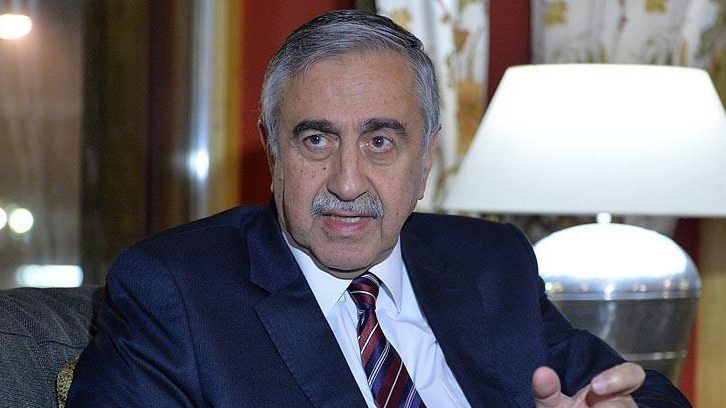
Unsolved Problems
Mustafa Akinci said that one of the unsolved problems is still the financing of the solution. In case of a Cyprus settlement, the compensations will be one of the critical points and the natural resources founded in the sea will be one of the sources of the financing problem. The cost of the non-solution will be higher.
He referred that large amounts of natural gas resources located close to the island of Cyprus, Akinci would wide cooperation in and around the region. Natural gas could be sent to Europe via Cyprus and Turkey and all regional countries could benefit from this, he added.
On the burning issues of Territory and property, Akinci said that the financial issues cannot be solved by Turkish Cypriots or Greek Cypriots alone, the support of the EU and the international community is also needed to solve financial problems.
“If we conclude everything within months on the political side, on the basic principles, on the territory issue, on the security issue, property and other remaining main issues, then it is not very important, if we extend into 2017 certain other parts that will be worked out.
Concluding Remarks
Turkish Northern Republic of Cyprus (TRNC) and Greek Cypriot settlement negotiations are now rightly going on which has already created sense of hope, socio-economic betterment and above all end of so long political isolation. After decades of impasse, the reunification of the island is now within reach. For the first time since Greek Cypriots rejected the UN’s 2004 reunification plan, both the communities now have visionary leaders, who have will and political acumen necessary to reach a solution.
Two pragmatic pro-solution leaders, the President of TRNC Mustafa Akinci and Nicos Anastasiades, the President of the Greek Cypriot South are the “ideal people” to negotiate a settlement agreement. They are trying their levels best to resolve the complicated issues. Important issues of territory, security, property and natural resources are still unresolved but their own resolve to reach a workable settlement is tremendous. Both are noble and their political commitment is above any “Nobel Price”. Moreover, both are far more moderate than their predecessors and, crucially, willing to compromise, the decisive factor in the possible settlement.
Till now, both leaders have made the most progress on how to share power in a future decentralised Cypriot state, on the nature of its legislative and judicial institutions and on the political equality of the two communities.
Previously, as the mayor of northern Nicosia, Akinci helped establish a sewage system that ran under the buffer zone the only real link between the two sides of the city. Since being elected president in 2015 such cooperation has been extended to mobile phone and electricity grids and symbolic strolls through the border with Anastasiades.
It has been “voyage indefinite” to surpass from the rocky planes of uncertainties to the shores of better understanding of co-existence and economic self-reliance. Cyprus may be small, but its reunification could have huge global ramifications. According to some estimates, reunification could boost the island’s GDP by €5bn within five years.
Financial cost of the settlement may be handled with a mix of remedies, including reinstatement and property swaps, compensating the 160,000 Greek and 40,000 Turkish Cypriots who abandoned their homes in the 1970s will cost billions of euros. Outcome of May 22 parliamentary elections in the Cyprus South may have interesting repercussions.
Issues of governance, sharing of political power and the last but not the least, security are still considerable hurdles. It is predicted that the island’s presidency will probably rotate between the two communities along with security matters. The boundaries between the two communities will also need to be redrawn.
Cyprus may be small. But its geographic location the most easterly country in the EU gives it huge strategic importance. The island’s reunification could spark big geopolitical consequences. The presidency of Mustafa Akinci as Turkish Cypriot leader is widely seen as a “game-changer” one that has significantly increased the chances of finding a solution. His first act on assuming office was to abolish the “entry visa” for visitors to northern Cyprus something that had long angered Greek Cypriots.
Like Mr Akinci, President Anastasiades is also an experienced politician. A political heavyweight, who is capable of being combative, he is not afraid to speak his mind. He was one of a handful in his party to endorse the doomed UN reunification plan, and more recently pushed through painful economic reforms a condition of the recent IMF bailout in the face of considerable public opposition.
A settlement deal/agreement would further strengthen the ray of hope in a region tormented with ethnic ferocity, political disorder, religious radicalism and social distress in Egypt, Israel, Lebanon, Syria and Turkey. Successful negotiations and finally a settlement would send a signal, from an island shared between Christianity and Islam since the 16th century that no conflict need be permanent. Humanity is above any conflict. In the event of a solution, Cyprus would be a functional model for coexistence between Muslims and Christians. Unity dividend is much bigger. An independent study (2014), called “The Cyprus Peace Dividend”, estimated that after a deal all-island gross domestic product would rise to about €45bn by 2035 from €20bn in 2012.
The past generations shared the pain; now the future generations may share the blessings of the united island. In a reunited Cyprus, all Cypriots irrespective of faith and sect will be citizens of Cyprus with equal rights, and the Bill of Rights will be federal, bi-zonal and bi-communal. Where, bi-zonal means two constituent states and bi-communal means two communities. Everyone will vote at all levels of government. Let us hope that “crossing the divide” would be a state of “multiplication”. There will be no barbed-wire fences, walls and watchtowers in the Cyprus in the future.
Let us hope that Cyprus, the island of Aphrodite, deep blue sea, long and sandy beaches, the warm Mediterranean sun and picturesque villages will be soon reunited through ongoing negotiations between the two sides. Cyprus, the east Mediterranean island which is famous as the birthplace of Aphrodite, the ancient Greek goddess of love and beauty, and no less renowned as the location of one of the world’s most intractable diplomatic disputes may be again hub of love, harmony, peace and inter-faith tolerance.


